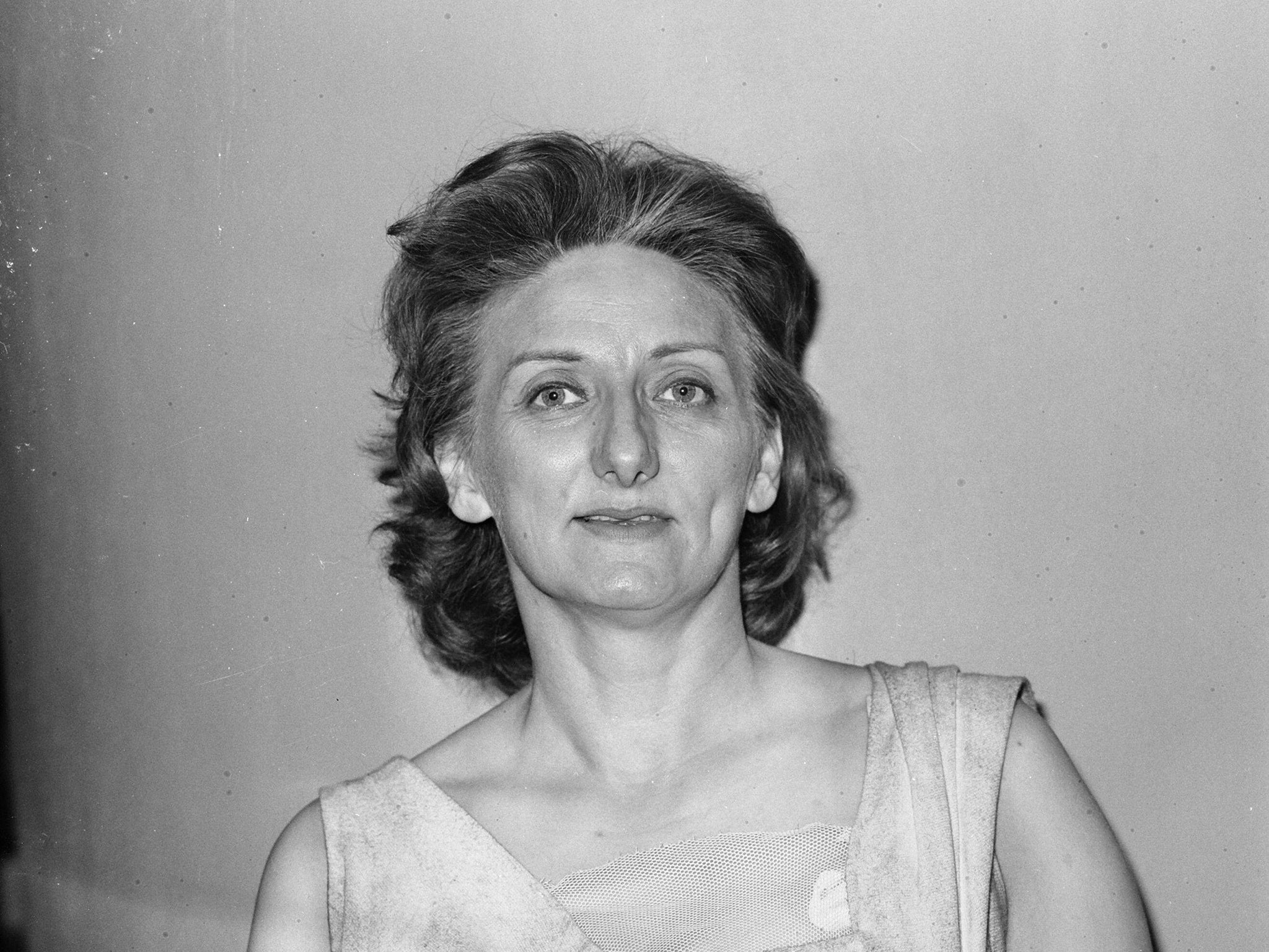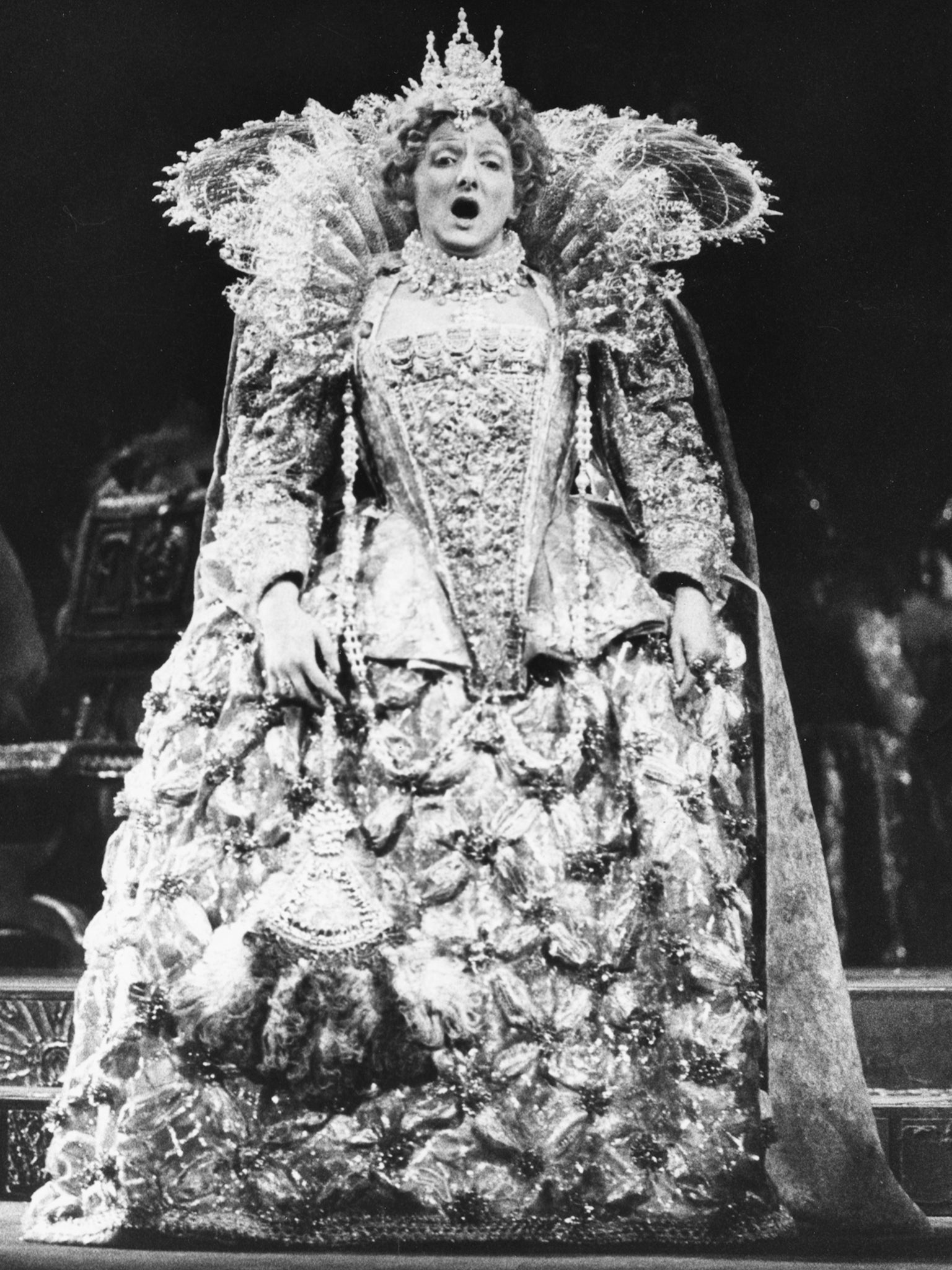Pauline Tinsley: Renowned British soprano who excelled worldwide
The opera singer captivated audiences around the world with her haunting and powerful vocals

Able to combine rare musical insight with remarkable resilience, Pauline Tinsley, who has died aged 93, was part of a select but notable band of British opera singers who rose to international prominence throughout the second half of the last century. A coloratura soprano of immense power and finesse allied to a commanding stage persona, while a particularly articulate interpreter of the music of Wagner, Verdi and Donizetti, she was no less successful in oratorio, concerts and broadcasting. However, despite all her worldwide acclaim, it always remained a mystery and a matter of regret that this no-nonsense northern lass was never exactly flavour of the month at the Royal Opera House.
Growing up in Wigan as the youngest of three daughters, Pauline Cecilia Tinsley’s musical prowess first came to the fore when a Notre Dame High School pupil. Encouraged by her mother, a keen amateur musician, Tinsley then studied at the Northern School of Music in Manchester where her teachers were Ellis Keeler and Margaret Dillon. Soon a stalwart of local music making, early reviews described her as, “a pleasing soprano of clarity and charm”. Subsequently moving to the London Opera Centre to study with Joan Cross, she further refined her vocal technique in the company of Roy Henderson, Eva Turner and Eduardo Asquez.
Making her professional debut in 1961 as Desdemona in a production of Rossini’s Otello at St Pancras Town Hall, the following year she was cast as Susanna in Welsh National Opera’s The Marriage of Figaro. This she followed with the role of Gilda in the Sadler’s Wells production of Rigoletto. Here as elsewhere, able to take great delight in the occasional grand gesture, her approach rarely failed to make an impact. Such seemingly effortless delivery, unerring accuracy, warm tone and sensitive interpretations soon endeared her to audiences and critics alike. Likewise, her sense of humour, generous spirit and impeccable timing won her the high regard of colleagues.
Equally an exemplary stalwart of the English choral society tradition, here her outlook embraced everything from the Verdi Requiem to Handel’s Messiah. Returning north in 1963, she was a soloist in the first Manchester performance of Michael Tippett’s oratorio, A Child of Our Time. Four years later, she was back at the Free Trade Hall for a rare outing of Edward Elgar’s The Apostles. In 1970, she was part of Lancaster University’s Beethoven bi-centenary celebrations headlining a concert performance of Fidelio conducted by Sir Charles Groves. No less impressive was her subsequent New York debut at the city’s Philharmonic Hall as a soloist in Felix Mendelssohn’s Elijah.

Earlier that year, she played the title role in Santa Fe Opera’s production of Anna Bolena and as well as Vancouver Opera’s version of Verdi’s Un Ballo Maschera. She later appeared in Houston and New Orleans. Proving no less impressive was her appearance as Lady Billows in a production of Benjamin Britten’s Albert Herring at the Opera Theatre of Saint Louis in 1978. Returning 12 months later, she then took the title role in the world premiere of Stephen Paulus’s opera, The Village Singer. In the interim, booked for an extended run in Donizetti’s Maria Stuarda opposite American singer, Beverley Sills, the production quickly closed after a jealous Sills reportedly attacked Tinsley with a riding crop.
European opera companies too regularly played host to her talents and yet, despite once dramatically rescuing a Covent Garden production of Un Ballo Maschera when both the leading lady, Martina Arroyo, and her understudy fell ill, her appearances there remained far too infrequent. Having spent 10 years with Sadler’s Wells, from 1975 until 1981 she was a member of Welsh National Opera. Able to tackle the most challenging of repertoire, in 1973-4, imperious alongside Janet Baker at the Coliseum, she successfully reprised Maria Stuarda. Her later roles included Isolde, Ortrud, Kundry and Brunnhilde for Opera North and a malevolent Witch for English National Opera.
In 1996, then aged 70, she was invited to perform at St David’s Hall in Cardiff to help celebrate the 50th anniversary of the Welsh National Opera. Despite being the oldest singer taking part she proved that she could still out-hiss Elizabeth Vaughan when performing Rossini’s magical Cat Duet. In 2002 she was on the stage of the Grand Theatre, Leeds, appearing in Opera North’s production of Janacek’s Jenufa. Two years later, in what would be a return to her roots with the Chelsea Opera Group, she made a valedictory appearance playing Madelon at the Queen Elizabeth Hall in a rare concert outing for Umberto Giordano’s torrid tale of the French Revolution, Andrea Chenier.
Marrying George Neighbour in 1956, he died in 2014. She is survived by a son and a daughter.
Pauline Tinsley, singer, born 27 March 1928, died 10 May 2021


